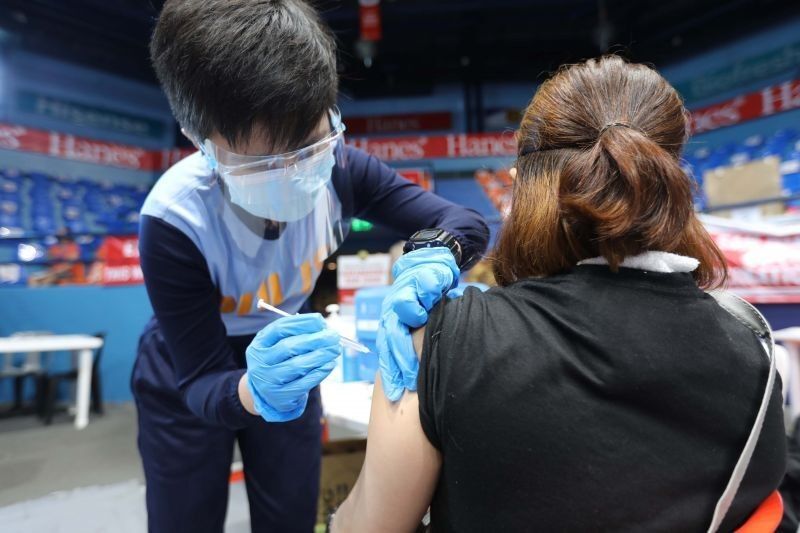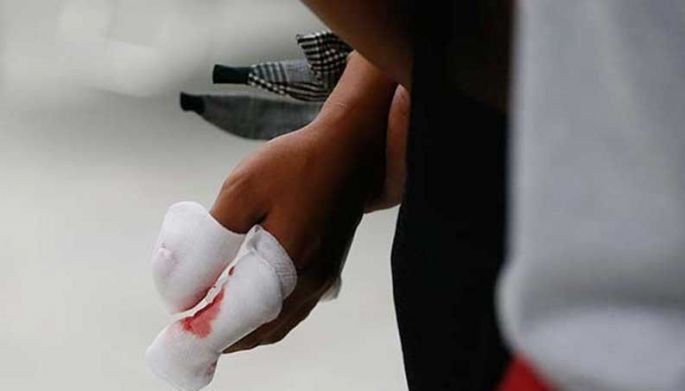Labor group: Reported 'no vax, no salary' schemes show DOLE protection insufficient

MANILA, Philippines — A labor group on Tuesday called on the Department of Labor and Employment to impose strict measures and penalize companies implementing "no vaccine, no salary" and "no vaccine, no work" policies.
This comes after the Trade Union Congress of the Philippines reported that some firms allegedly refused to pay the salaries of unvaccinated employees and demanded that the workers show their vaccination cards to prove that they have been fully vaccinated against COVID-19.
In a statement, Kilusang Mayo Uno said that many companies continue to implement similar policies despite a labor advisory issued last March prohibiting
"What is happening now is that workers are still being punished for the decision not to get vaccinated while these companies are blatantly violating the law because of that policy they are able to operate freely," Elmer Labog, KMU chairperson and a candidate for senator, said.
"This is why it’s not enough for [Labor Secretary Silvestre] Bello to say that workers can file a formal complaint before the agency. Workers already know that, but what they need now is the assurance of strict intervention and that the DOLE will penalize these companies to ensure these cases are not repeated."
While the group admitted it had "not directly received reports" of the "no vaccine, no salary" scheme, it said it "continues to receive complaints from workers regarding the 'no vaccine, no work' policy via its hotline."
Labog pointed out that the practice is also a "direct violation" of Article 100 of the Labor Code, which prohibits the elimination or diminution of benefits for workers.
"We will repeat ourselves, the government should focus on launching information drives and campaigns to encourage workers to get vaccinated," Labog said, pointing to what he said were "suggestions from our lawmakers to incentivize vaccinated workers."
"This is not a solution, and instead a direct attack on workers, is the withholding of wages and the dismissal of them from work because of the vaccine. In a situation where salaries of workers are meant to sustain meals for their families, you will really starve the families of the workers because of such policies," added Labog.
Labog asserted that even if workers want to get vaccinated, the government’s slow vaccine rollout hinders them from doing so. The government's vaccination program had been hampered by supply issues but it has since been expanded to cover the general public.
"We continue to call for a scientific and pro-people pandemic response. It is necessary to ensure the supply of vaccine to the LGUs and facilitate the overall vaccination process," concluded Labog.
"The queuing of workers at vaccination sites is equivalent to absenteeism and loss of a day's wage."
Vaccine hesitancy amid heavy-handed implementation
The strict implementation of pandemic protocols has been a significant aspect of the national government's pandemic response, with security officials having arrested people holding feeding programs and relief drives in the past.
Results from a survey conducted by the Social Weather Stations from June 23 to June 26 suggest that about 45% of Filipinos are willing to get inoculated against the coronavirus.
This was higher than the SWS survey from May, where only 3 out of 10 adult Filipinos were willing to get vaccinated.
Earlier, the World Health Organization named vaccine hesitancy as one of the top threats to global health in 2019, saying it "threatens to reverse progress made in tackling vaccine-preventable disease."
To date, health authorities have recorded 2.7 million coronavirus infections in the country, 63,637 of which are still classified as active cases.
- Latest
- Trending




























